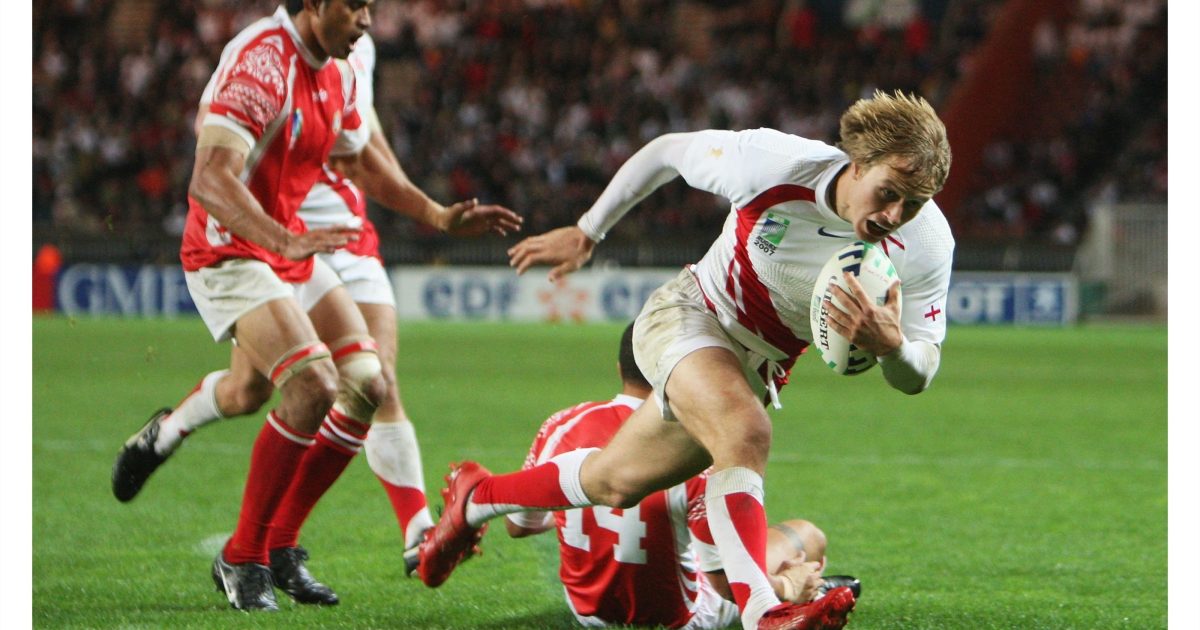Mathew Tait en connaît un rayon sur les terrains puisqu’il a enflammé la plus grande scène du rugby avec l’Angleterre contre l’Afrique du Sud lors de la finale de la Coupe du Monde de Rugby à Paris en 2007.
Seize ans plus tard, l’ancien arrière ou trois-quarts centre occupe depuis un an le poste de directeur général et directeur du HSBC SVNS Dubaï.
Âgé de 37 ans, il est chargé de développer les opportunités commerciales et stratégiques sur ce tournoi remodelé ainsi que sur le Sevens Stadium de manière plus large. Il supervise la logistique, les réseaux sociaux, le marketing et gère les équipes et le calendrier de l’événement.
Le tournoi tant attendu se tient les 1er et 2 décembre et lance la saison de rugby à sept. Ce père de deux enfants s’est attelé à la mise en place de ce qui s’annonce comme un week-end plein d’action, de sport, de spectacles et d’expériences. Mais comment en est-il arrivé là ?
Un master en gestion du sport
Tait a pris sa retraite du rugby professionnel en 2019 et a débuté dans ses nouvelles fonctions en octobre 2022, un mois avant le Dubai Sevens.
Alors qu’il était encore joueur, il a obtenu un master en gestion du sport, qu’il essaie maintenant de mettre à profit pour organiser l’un des plus grands tournois de rugby à sept au monde.
Dubaï lui semble être l’endroit idéal pour commencer sa vie d’ex-joueur. Après tout, c’est là qu’il a joué un rôle clé dans la relance de sa carrière.
En 2004, alors qu’il n’avait que 18 ans, Tait faisait partie d’une équipe d’Angleterre exceptionnelle qui a remporté le tournoi de Dubaï sur l’ancien terrain Exiles à Al Awir. Il était de retour 12 mois plus tard, lorsque l’équipe a remporté un deuxième titre de suite à Dubaï.
Début de carrière difficile à XV
Entre les deux titres, Tait a vécu une année cauchemardesque censée le lancer dans le XV international. Trois mois après avoir joué à Dubaï, il était rapidement intégré à l’équipe d’Angleterre pour le Tournoi des Six Nations. Il était alors à ce moment-là le deuxième plus jeune joueur, après Jonny Wilkinson, à représenter l’Angleterre depuis la Seconde Guerre mondiale.
L’ascension a été fulgurante. Trop rapide. Ses débuts le 5 février ont été difficiles, victime Gavin Henson, le centre du Pays de Galles, lors de la défaite de l’Angleterre à Cardiff (11-9). Il cumulera quand même 38 sélections avec le XV de la Rose entre 2005 et 2010
Suite à cet unique match du Tournoi – sa deuxième sélection n’interviendra qu’un an et quatre mois plus tard pour une tournée d’été en Australie – a été vite renvoyé dans son club, puis est revenu sur le circuit mondial de rugby à sept, Rob Andrew et Steve Black, ses mentors aux Newcastle Falcons, cherchant à lui redonner confiance en lui.
Relancé à Dubaï
« J’ai été lancé pour la première fois à l’âge de 18 ans et j’ai laissé mes poumons quelque part sur le terrain », raconte Tait à The National qui relate son histoire.
« En 2005, j’ai fait mes débuts avec l’Angleterre [XV] en février. Ensuite, le rugby à sept est devenu une planche de salut pour moi, vraiment. C’était l’occasion pour moi de me remettre sur les rails.
« Les débuts en 2005 ne s’étaient pas déroulés comme prévu. J’ai dû faire face à diverses pressions. Mon rugby, à la base, consistait à courir vite et à battre les adversaires. C’est ce qu’est le rugby à sept dans son essence. »
Depuis, le rugby à sept s’est spécialisé. À l’époque, il était considéré comme une voie de développement préparant les joueurs prometteurs au rugby à XV. Ou, dans le cas de Tait, comme un moyen de se remettre.
De retour à Dubaï, il a pour mission de superviser l’organisation d’un tournoi qu’il a adoré en tant que joueur.
« C’était très différent, beaucoup plus de crachats et de sciure qu’aujourd’hui », rigole-t-il lorsqu’il se rappelle les matchs à l’Exiles.
Aujourd’hui, l’ancien terrain a disparu depuis longtemps, absorbé par l’avancée urbaine de Dubaï. Le tournoi a été déplacé sur la route d’Al Ain et le Dubaï Sevens a pris de l’ampleur jusqu’à devenir l’événement sportif le plus ancien des Émirats arabes unis.



